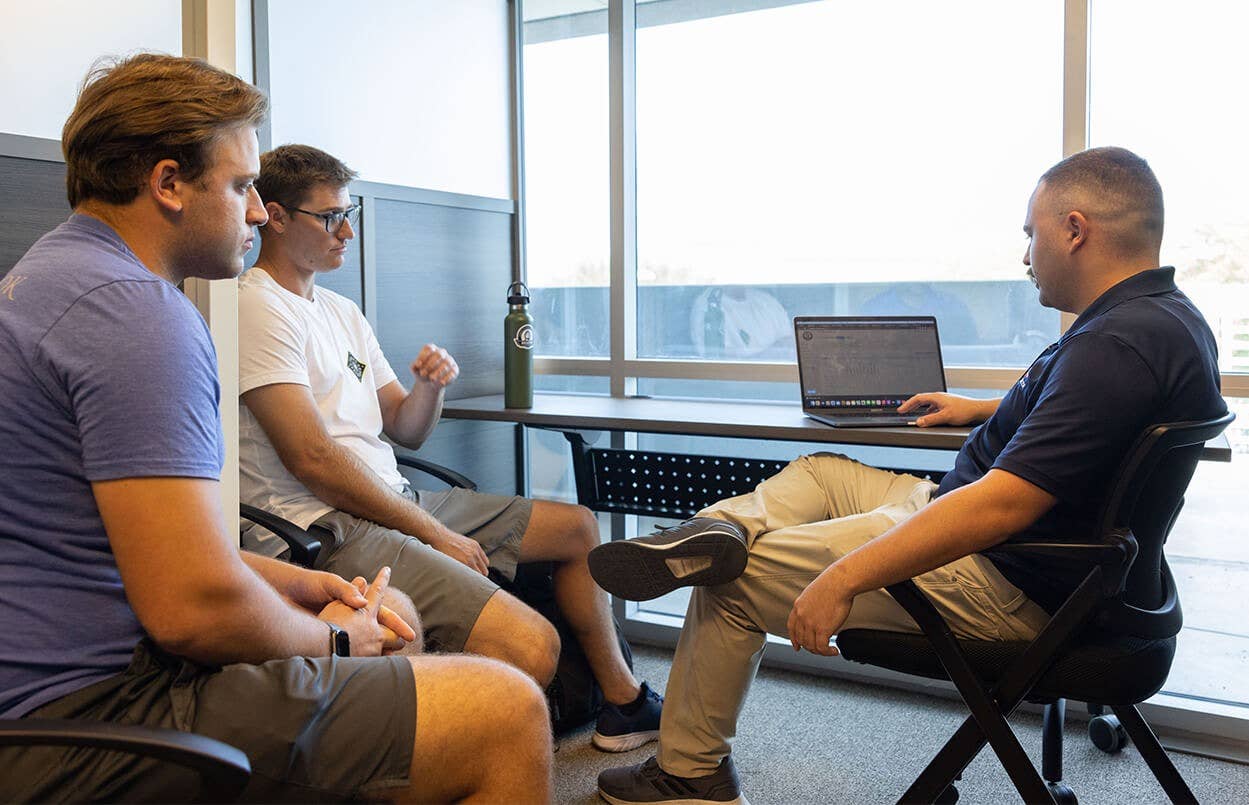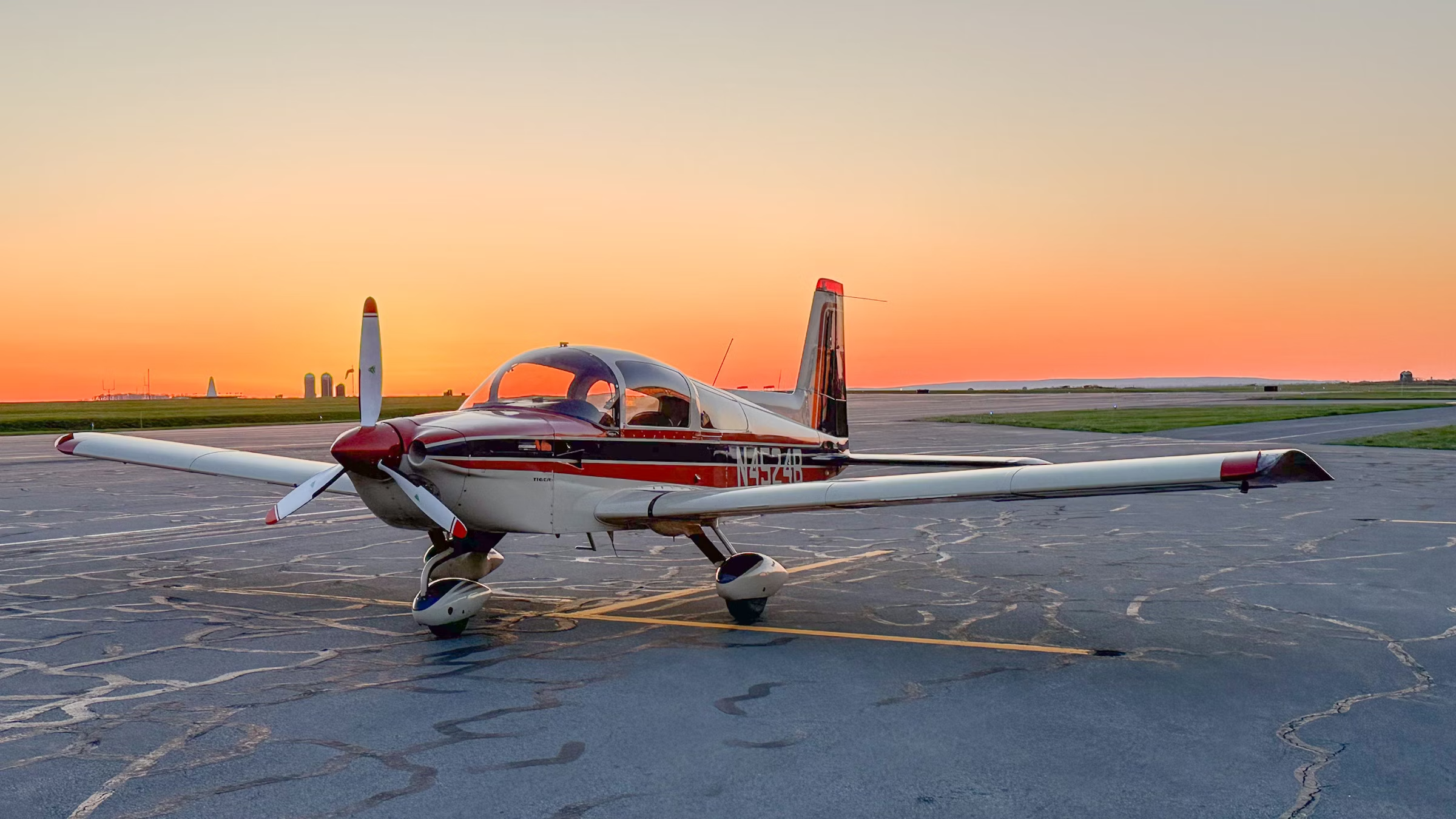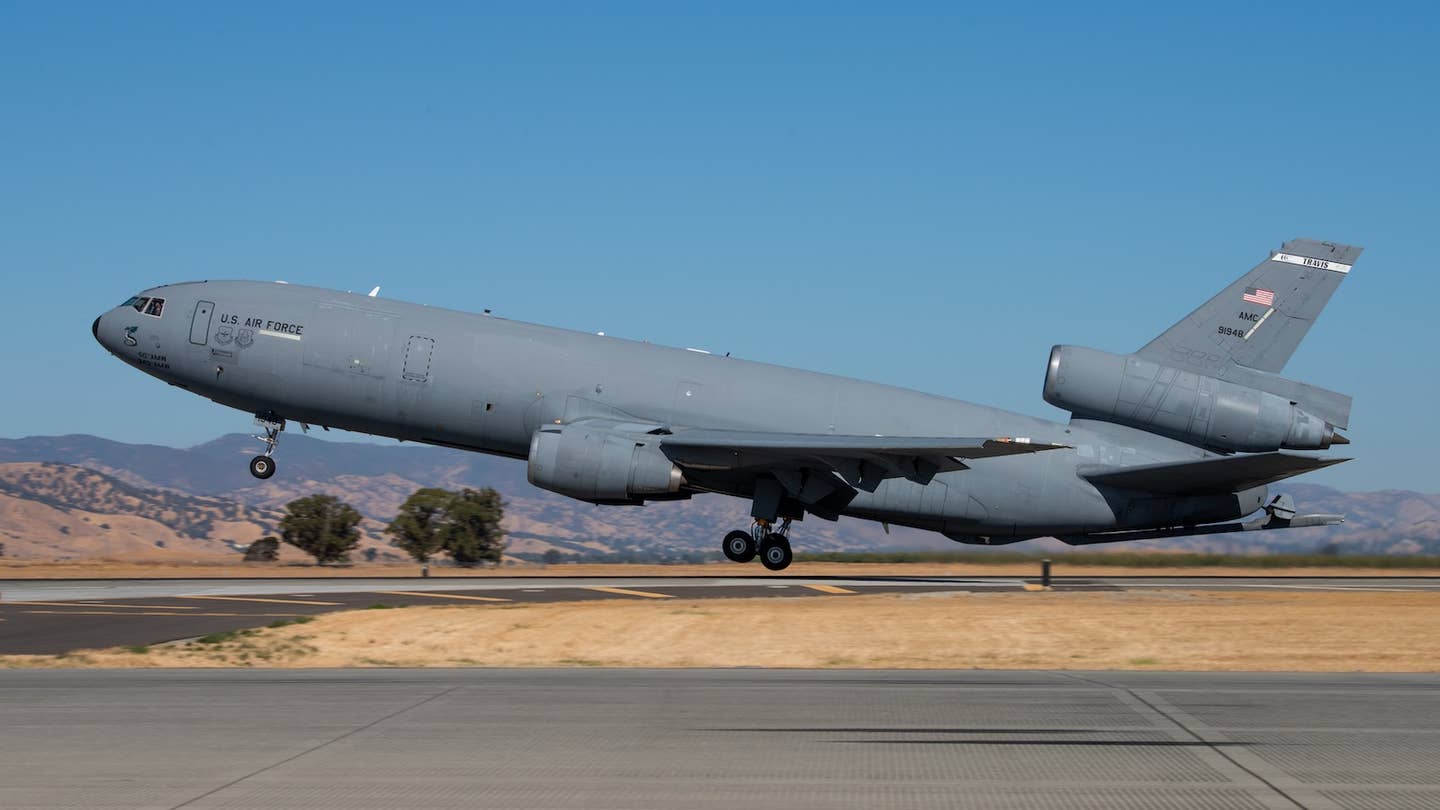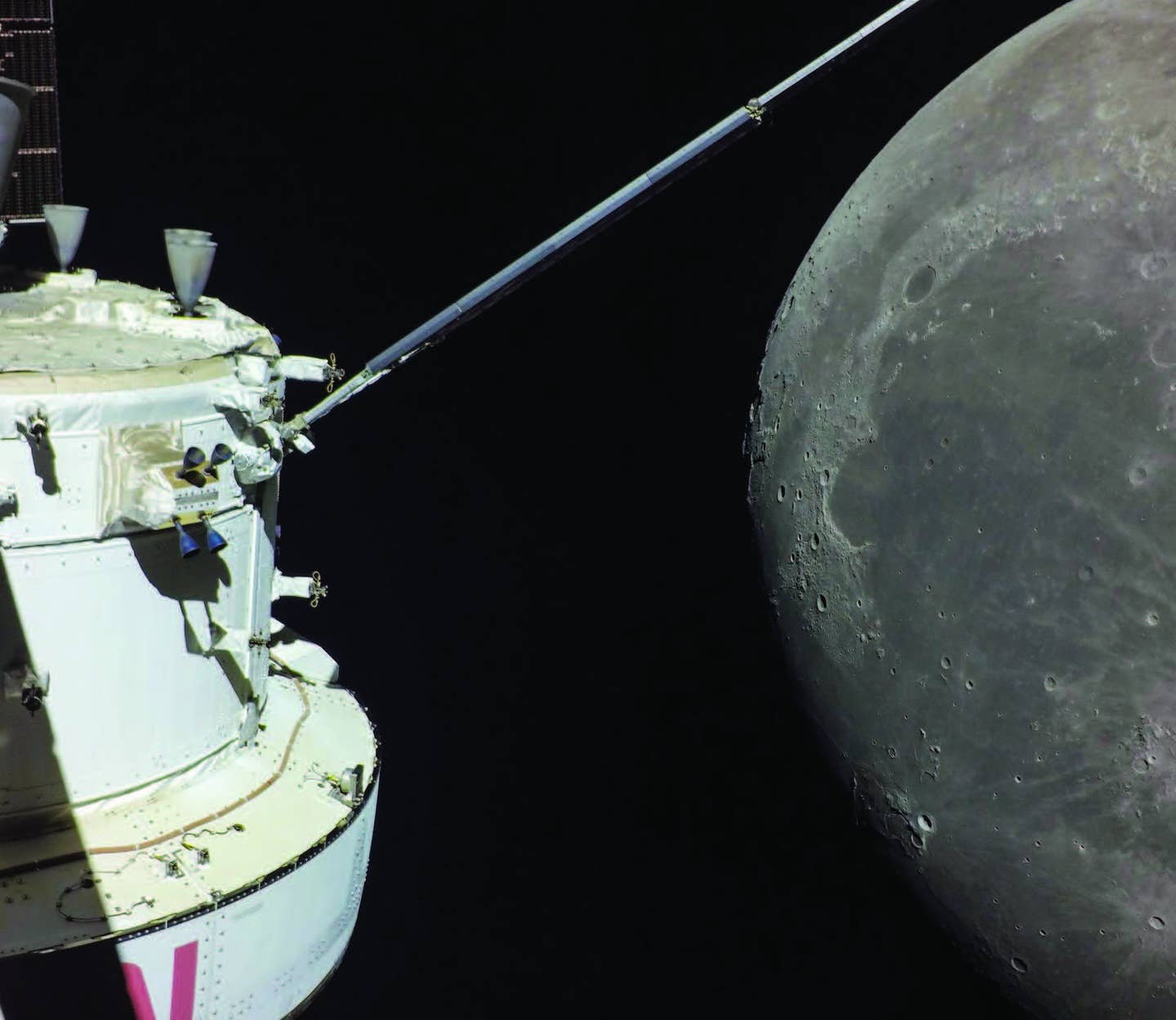Founders of Sisters of the Skies Share a Colorful Vision of Aviation
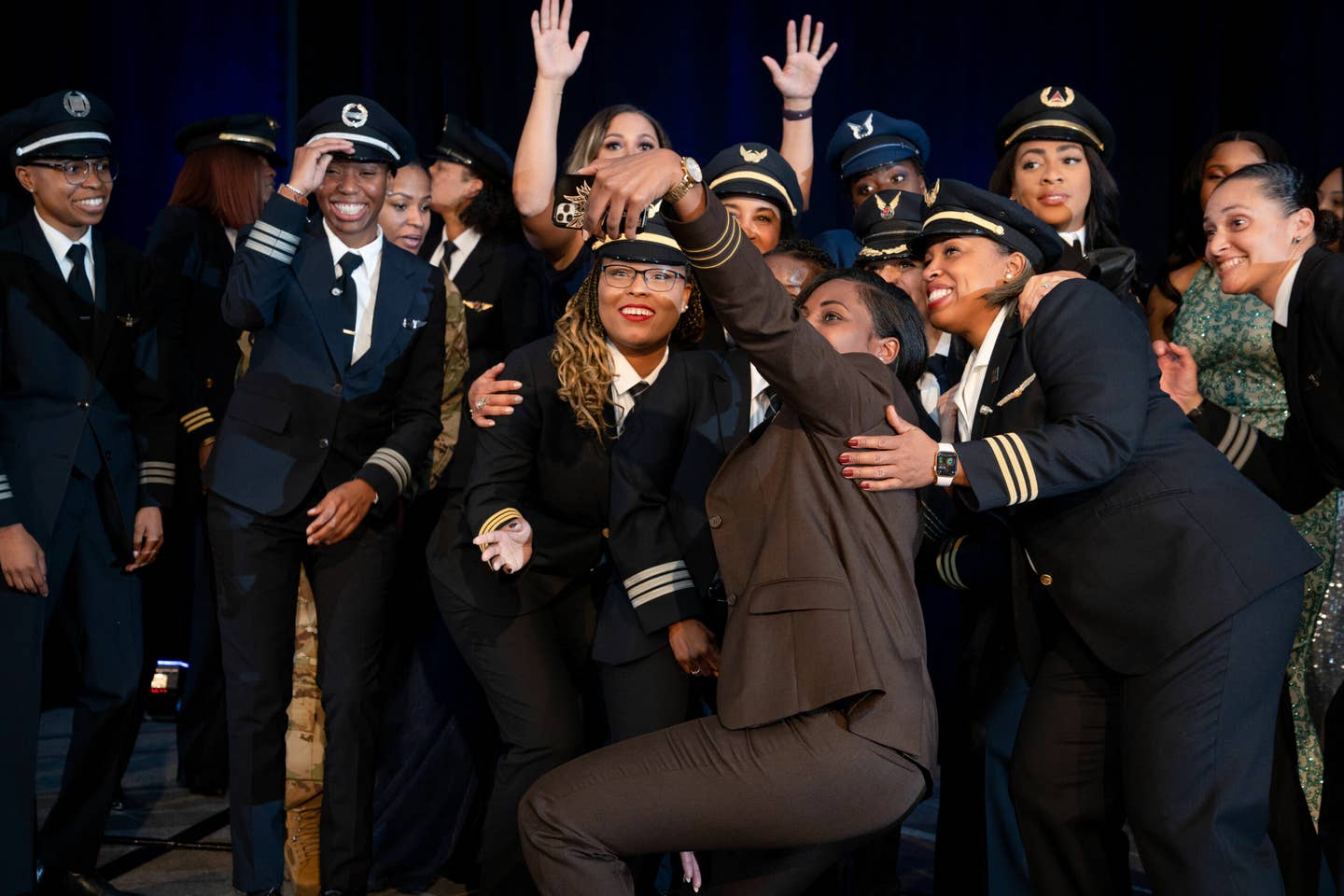
Angel Hughes, Sisters of the Skies (SOS) cofounder and board chair, holds her cell phone as Nia Gilliam-Wordlaw, fellow SOS cofounder and CEO, leans in behind her to take a group selfie with other Black and Brown women pilots attending the 4th Annual SOS Gala held Feb. 26, 2022, in Atlanta. [Courtesy: Sisters of the Sky]
Editor’s Note: This article is part of a month-long series to mark Women’s History Month: March 1: Pioneers of Women’s Aviation | March 2: Carole Hopson | March 4: Martha King | March 8: Association for Women in Aviation Maintenance | March 11: The Air Race Classic | March 15: Sisters of the Skies | March 18: Women in Aviation Conference | March 22: Women In Aviation: The Numbers | March 22: The first graduating class of Air Force female pilots. | March 25: Bonny Simi of Joby Aviation | March 29: Top Female Difference Makers in Aviation
Nia Gilliam-Wordlaw remembers ditching high school to attend the funeral of Janet Harmon Bragg, the first African-American woman to earn a commercial pilot certificate. “I took two trains and a bus to the city of Chicago from the suburbs,” she says. Upon arriving at the church, she was disappointed to find there was no viewing of the body.
"...I was desperate enough to ditch school to see a dead woman, just because she looked like me and was a pilot. It’s serious."
Nia Gilliam-Wordlaw, first officer at United Airlines and co-founder and CEO of Sisters of the Skies
“Representation matters,” says Gilliam-Wordlaw, now a first officer at United Airlines and co-founder and CEO of Sisters of the Skies, a nonprofit that supports future and current Black and Brown women airline pilots. “I mean, I was desperate enough to ditch school to see a dead woman, just because she looked like me and was a pilot. It’s serious.”
A decade younger than Gilliam-Wordlaw, Angel Hughes, a first officer for UPS and Sisters of the Skies co-founder and board chair, says she also lacked Black female role models when she started flying. In fact, Hughes reached out to Gilliam-Wordlaw via Facebook Messenger, after seeing a picture of her in her pilot uniform on the social media platform.
“I started flight training at age 16 and had been around airports, aviation…and now I’m 29 years old when I first met Nia, and it was the first time seeing a woman like me doing what I wanted to do,” Hughes says.
The Numbers
Of the 163,934 FAA-certificated airline transport pilots (ATP) in the U.S. (2021), less than 1 percent are Black women, according to Hughes. While the FAA does not track the race or ethnicity of ATP certificate holders, Sisters of the Skies does. “In our network our numbers are so small, it sounds crazy, but yes, we do all know each other, and it’s very easy to keep track of those numbers,” Hughes says. “We have women that are at every major airline…[For example] at Delta, there’s seven of us, United has like 20 or 22; we know all of them, same with American, UPS, FedEx, Alaska, Southwest, and so on and so forth. From those numbers, we’re between 150 and 200 [Black women] with ATPs.”
Women, in general, make up only 4.6 percent of certificated ATPs, according to the FAA’s 2021 study on U.S. Civil Airmen Statistics. “We’re minorities within a minority,” Hughes says.
Recognizing the need to support and grow their number, in 2017, Gilliam-Wordlaw and Hughes, then a lieutenant commander in the U.S. Coast Guard, created Sisters of the Skies, also known as SOS.
They already had a head start on membership. Shortly after meeting Gilliam-Wordlaw on Facebook, Hughes started a group on the GroupMe app so they could identify other Black women professional pilots and connect and support one another. That year, members of the group met socially and even raised $2,500 through a GoFundMe campaign to establish a scholarship.
“We decided if we want to be really impactful, we need to become legitimate,” Gilliam-Wordlaw says.
Anne Sulton, a Black woman pilot turned attorney, donated her services to help them incorporate SOS as a 501(c)3 nonprofit organization. Today, SOS has 133 dues-paying members and 200 mentees, commercial pilots in training who participate in its mentorship program.
“Within the next five years, we want to triple our numbers of Black female airline pilots; and we think we are on track to doing that,” Hughes says.
Founded on Three Pillars
To this end, the organization provides scholarship, mentorship, and outreach—its three core pillars—for women of color who are or who aspire to be professional pilots. On February 26, the organization awarded $50,000 in scholarships to 11 women at its annual gala/fundraising event. “In four years, we’ve given out a half a million dollars,” Hughes says. “I’m very proud of that.” The number of event sponsors has also grown and now includes Delta Air Lines, American Airlines, United Airlines, and Alaska Airlines.
Scholarships address the financial need that can be a barrier for women entering the profession, especially given the high cost of flight training; mentorship provides the support they need to navigate a male-dominated industry and an intensive training environment; and outreach opens the door by showing them a “mirror,” a reflection of who they can be, Hughes says.
Being the ‘Mirror’
SOS members participate in career days at local schools and attend conferences, making it a point to always wear their airline pilot uniforms. The organization also hosts its own outreach event: Girls Rock Wings (GRoW), an annual, one-day aviation exploration camp aimed at Black and Brown girls in the 6th to 12th grades. At the event, pilots who are members of SOS, take girls on discovery flights, give them a tour of an air traffic control tower, and guide them in aviation-related/STEM learning activities.
Gilliam-Wordlaw says seeing the success of the first GRoW event reinforced her passion about the organization and its mission. A local reporter had filmed the day’s activities and the video aired that night on the news. “At the end of the day, when I saw this and all these little girls were like, ‘I want to be a pilot’…that just warmed my heart, it was very emotional,” Gilliam-Wordlaw says.
An SOS mentee working to complete her commercial pilot certification, Ashley Hasan is a GRoW volunteer and an SOS scholarship awardee. She says she’s benefited personally and professionally from her involvement with the organization.
“When you go to these [GRoW] events, you see these kids that came in knowing nothing,” Hasan said. “To see them excited about aviation…and meeting their parents and having them thank you reinforces that you are making a difference in someone’s life. I didn’t have that [aviation experience] as a child. Being able to do that now is like giving back to myself and others, as well.”
There’s No Ceiling in the Sky
According to Hughes, there are people in communities who don’t have the opportunity to fly on an airplane and who may never walk through an airport. “There shouldn’t be a ceiling to your dreams,” she says. And a lack of exposure to and guidance about aviation careers, like piloting, creates a de-facto ceiling. “I think a lot of young girls, especially, they don’t think about being a pilot, if they just don’t see it. One way to change this is to put it in front of their face,” Hughes says. “Outreach is of the utmost importance.”
Hughes speaks from first-hand experience. She grew up in an inner-city community in Newark, New Jersey, where the local high school’s “dropout rate was higher than its graduation level.” Thanks to a flight training program opening across the street from her home—and a passionate 6th-grade science teacher, who inspired her to first become an astronomer, then an astronaut and Space Shuttle pilot, and finally an airline pilot—she pursued her dream and never looked back.
Gilliam-Wordlaw, who grew up in a home below the Class B airspace of Chicago O’Hare (KORD), says because of a lack of Black women pilot role models when she was a kid, her first “mentor” was Bessie Coleman. Upon learning of her daughter’s desire to be a pilot, Gilliam-Wordlaw’s mother found an article on microfilm at the library about the legendary aviatrix, who because of gender and racial discrimination traveled to France to earn her pilot’s certificate in 1921. “She was showing me someone who looked like me because representation matters…I remember having that article, and I framed it and kept it by my bedside,” Gilliam-Wordlaw says. “That was the factor that helped me, the support system I had from my mom and dad—and Brave Bessie’s story.”
But not every young girl of color has the support and encouragement Gilliam-Wordlaw received or the intrinsic motivation of Hughes. That’s why SOS is so important, Gilliam-Wordlaw says.
She acknowledges there are other aviation nonprofits doing good work to help diversify and support the industry, including Women in Aviation International and the Organization of Black Aerospace Professionals—and she’s an active member of these organizations as well. But, she says, SOS has a unique focus.
“As a woman, I deal with the Me Too movement; as a Black person, I deal with Black Lives Matter. Those issues both apply to me and no one understands the heaviness of that, except me and other women like me,” Gilliam-Wordlaw says. “If you feel like this is a place that you would feel seen and heard, and you’re a commercial pilot and you desire to fly for a living, then this is the organization for you.”

Sign-up for newsletters & special offers!
Get the latest FLYING stories & special offers delivered directly to your inbox

